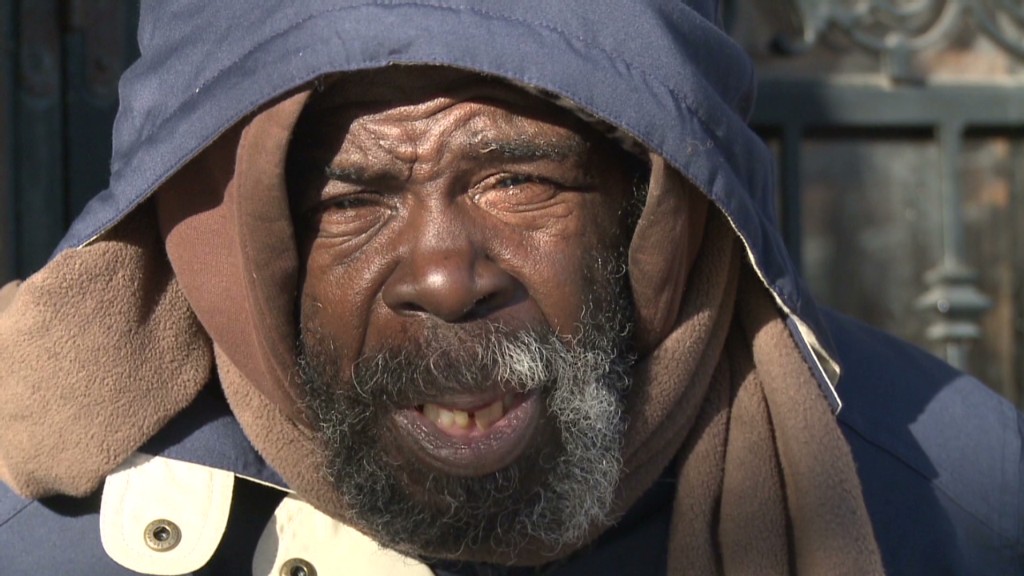
After volunteers and aid workers spent a frigid 24 hours in January counting the homeless in America's poorest and most dangerous city, the results are finally in.
There were 654 homeless people in the county of Camden, N.J., on Jan. 28, up slightly from 641 last year, according to the Point-In-Time survey.
The survey is conducted each year by local aid organizations, and the U.S. Department of Housing and Urban Development uses the results to assess need and determine funding in each part of the country.
But the count is highly controversial.
Many homeless advocates say the numbers are vastly understated because so many people are bound to be missed, like those who are couch surfing, in prison or staying in hospitals, motels or abandoned buildings.
Related: Counting the homeless in America's poorest city
Homeless people are even more likely to resort to this kind of shelter when the weather is colder than usual -- which it was in Camden this winter. During this year's count, the temperature plunged far below freezing.
CNNMoney went along with aid workers in January and spoke with several homeless people who said they hadn't been counted. Some of them had been homeless for more than a decade and said they had no idea that the annual survey even took place.
"I believe our numbers would have been a lot higher had it not been so cold," said Shantel Garner, a project specialist at the Community Planning & Advocacy Council (CPAC), which helped organize and conduct Camden's count.
Related: Camden's homeless share their stories
Based on the work her organization does with the local homeless community, she estimated that there are at least 800 homeless people in the county.
Homelessness is a growing problem in Camden, she said. The city's poverty rate stands at around 40%, and a lack of jobs -- the unemployment rate is over 12% -- leaves many unable to afford housing.

According to the results of the count, the largest share of respondents cited job loss or a reduction in salary or benefits as the main reason they were homeless. Other factors included drug and alcohol abuse, and being kicked out of a shared residence.
At the same time, resources to help the homeless have been shrinking: Social services agencies across the country saw their federal funding get cut by at least 5% last year, leading many organizations in Camden to run out of money well before the end of the year, said Garner.
Related: Camden shuts down its tent cities
One indication of the growing problem: tent cities have been cropping up under Camden's bridges and off of highways recent years. These makeshift communities of homeless people living in tents became such a health and safety hazard that the county actually shut them down and evicted all the residents last month.
Meanwhile, local shelters are forced to turn people away because there are no more available beds. Garner said that up until about a year ago, shelter space hadn't been an issue.
"The problem is tremendous," said Garner. "The economy in Camden is what's really doing damage to us -- there's more people going to [social service] agencies for assistance, and the money isn't there for them ... and unfortunately, even the shelters are full."
